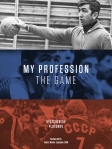Tagged – Coaching Lessons
Over the course of my travels, I have had many and various cultural experiences, of all which have contributed to whatever it is that I am now. Some of those experiences have given me valuable lessons which I continue to use every day.
About fifteen years ago, I had my first real ‘Polish’ experience at the Italian home of a Polish player. During the course of evening the biggest entertainment was my attempt to correctly pronounce the name ‘Andrzej’. I pride myself on my ability to pronounce names correctly but I absolutely could not manage Andrzej. Over and over again, I listened the our hostess say the word. Over and over again, I analysed what I heard and repeated it exactly as I heard it. Over and over again, I was wrong. It was incredibly frustrating, and as enjoyable as the evening was, I never forgot the episode.
Fast forward seven years and I found myself working in Poland and learning Polish. One of the early lessons was about the alphabet and sounds. I learnt that although it mostly looks the same, the alphabet is actually different and there are some specific combinations of letters that have specific sounds. For example, ‘rz’ together is pronounced ‘zh’. My mind instantly flashed back to that dinner. ‘You don’t pronounce the ‘r’!!!’ I suddenly knew the mistake I had been making with ‘Andrzej’. When I was listening to the word, I was always trying to hear the ‘r’ and figure out where it went, even though there is no ‘r’. The problem was that no matter how much new information I received, the underlying concept in my mind would not allow me to hear what was being said.
Exactly the same thing has happened to me in my coaching life. It has happened to me many times that the information I was trying to give players was being blocked by a concept they already had. On one occasion, I was giving feedback to a player about his platform during reception and his inability to put my words into practice was just as frustrating as my very first attempt at Polish. It took me some time to work out that although I was talking about his platform, he was thinking about his footwork and the two concepts were working against each other. Once I worked this out, I was able to adjust my feedback appropriately and our progress was better.
The moral of the story is that in most cases, a coach is not the first coach of the player. However many coaches that player has had, there are at least as many technical concepts in the mind of that player. When providing feedback to a player, the coach must be aware that everything said is being added to the existing jumble in the player’s mind and as the coach is speaking the player is trying to rationalise the new information with what he already holds to be true. For the feedback to be really effective, the coach must understand what the player already thinks and put the feedback into the right place in the chain. Only then will the player be able to say ‘Undjay’ correctly.
Check out over 70 specific coaching tips for all levels here.
Read about the great new Vyacheslav Platonov coaching book here.


“Not the speaker but the one who listens, decides the importance of a message.” Bock, 1997
LikeLike
Do you have to empty their cups, so that they can taste your tea?
LikeLike
😀
LikeLike
Seriously! … I’m a big fan of single malts, but I heard of really good blends… Should you ask/tell your players – to use the same “teacup-metaphor” – to empty their cups first to get the pure taste of your tea? Or do you take the risk of a blended tea?
LikeLike
I didn’t actually use the “teacup metaphor” in the post. But if I had, and if I were a Zen master, I am certain I would say that the cup is either empty or not empty.
LikeLike